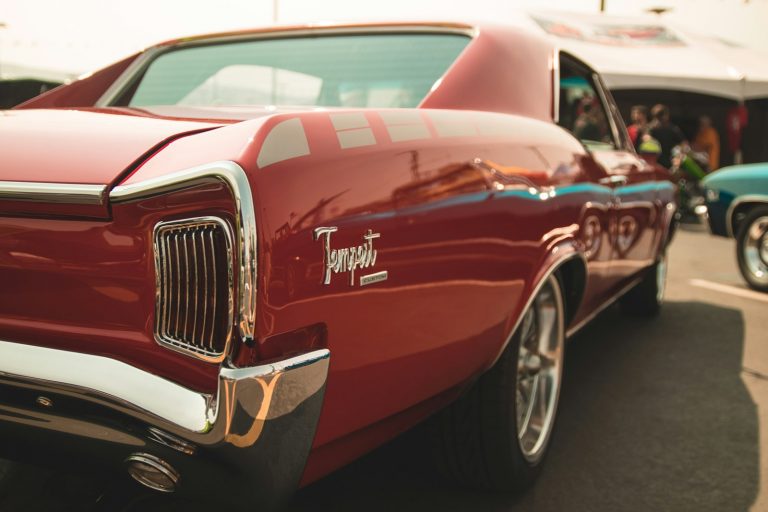Have you been considering purchasing a rebuilt car? These vehicles, often priced significantly lower than a car fresh off the lot, can be an attractive option if you’re looking to save some money on a vehicle purchase. However, before moving ahead with your decision, you should be sure to carefully analyze the potential benefits and drawbacks of buying a rebuilt vehicle. In this article we discuss what rebuilt cars are, the factors you should consider before buying one, and potential safety concerns associated with salvaged vehicles.
Story Stages
What is a Rebuilt Car?
A rebuilt car is a vehicle that has sustained significant damage from an accident, flood, fire, or other incident. When a vehicle suffers catastrophic damage of this nature, insurance companies will likely declare it a “total loss.” When a vehicle is deemed totaled, this is because the repair costs exceed the car’s value. However, a vehicle that is totaled can be rebuilt and made functional by a qualified repair shop. Each U.S. state has different laws regarding the purchase, repair, and sale of totaled vehicles, but there are generally rigorous inspection processes in place for repair shops that work on severely damaged cars. In most locations, totaled cars that are rebuilt receive a salvage title that clearly describes the vehicle’s history.
Pros & Cons of Purchasing a Rebuilt Vehicle
There are some undeniable advantages to purchasing a rebuilt car. First and foremost, you will save a considerable amount of money compared to similar-condition, non-rebuilt vehicles. In many cases, rebuilt cars have undergone exhaustive repairs that may have addressed other pre-existing issues, granting the buyer a car in excellent mechanical condition. Additionally, rebuilt cars have often undergone a comprehensive repair process, potentially addressing pre-existing issues and leaving the buyer with a vehicle in excellent mechanical condition.
However, you should also consider the potential drawbacks of purchasing a vehicle that’s been rebuilt. It’s important to remember that rebuilt vehicles usually suffered significant damage at some point, some of which may have gone undetected and unrepaired. In such a case, you could find yourself facing future mechanical problems and unexpected repair costs. You should also consider the resale value of a rebuilt car. If you decide to sell the vehicle after purchasing it, the market value will be significantly lower than for a similar vehicle with a clean title. In some cases, insurance companies may also be reluctant to insure a rebuilt car or you might need to pay a higher premium.
Making an Informed Choice
Before deciding to buy a rebuilt car, you should carefully consider:
- Vehicle History and Damage: You should begin by obtaining a detailed vehicle history report. The report will describe the type of damage the car sustained, along with all repair work performed. Of particular importance are reports on parts replaced and repairs completed.
- Inspection and Certification: Before moving through with a purchase, be sure to have the vehicle inspected by a qualified mechanic. They should inspect the car for any safety concerns, inadequate repairs, or hidden damage. Ideally, you want to seek a mechanic with experience inspecting rebuilt cars.
- Insurance and Financing: Be sure to understand what you’re going to end up paying in terms of insurance before making the purchase. Contact multiple insurance providers to enquire about coverage options for rebuilt vehicles. If you expect to take out a loan, verify that lenders do not have stricter requirements or higher insurance rates for rebuilt vehicles.
Checking a Rebuilt Car’s Structural Integrity & Repair Quality
A major concern with rebuilt cars is structural integrity. Repairs performed on the vehicle should adequately address any damage to the vehicle’s chassis or frame, which are crucial for the vehicle’s occupants if a crash occurs. During the inspection process, make sure the mechanic verifies the quality of repairs performed.
Low-quality repair work can cause the new owner of a rebuilt car no end of issues. Verify that repairs were performed by a qualified professional that used genuine OEM parts. Non-OEM parts or improper repair techniques can compromise the car’s safety and performance.
Performing Thorough Research Before Making a Purchase
Buying a rebuilt car requires a more cautious approach than buying a brand-new vehicle off a dealer’s lot. By performing thorough research, bringing in an experienced mechanic, and exercising caution throughout the buying process, you can protect yourself from the risk of accidentally purchasing a lemon.
When making a final decision, you should weigh your individual needs, risk tolerance, and budget. If you choose to prioritize affordability and are confident that a rebuilt car has been built to acceptable standards, moving forward with a purchase might be a sound decision. If a rebuilt car’s future resale value and possible hidden damage worry you, a car that was not previously totaled may be a better choice. Either way, as long as you do your research beforehand, you can make a decision with confidence.
